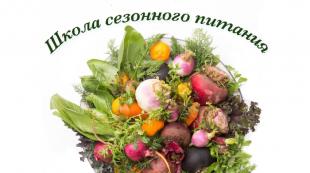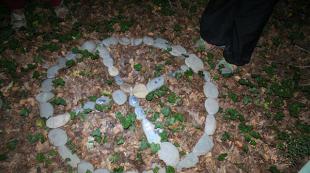Presentation of proverbs of different nations. Presentation: Proverbs and sayings
Description of the presentation on individual slides:
1 slide
Description of the slide:
« Comparative analysis proverbs and sayings different peoples". Completed by Alexandra Molodova, a student of the 8th "N" class of MBOU School No. 42 of the city of Samara scientific adviser Naida S.G., teacher of Russian language and literature Regional scientific and practical conference "From idea to scientific search" Section "World art culture» Subject of work: Samara, 2013
2 slide
Description of the slide:
What are proverbs? Proverbs are one of the small genres of folklore. For centuries, our ancestors preserved and passed from mouth to mouth folk wisdom, which "taught the mind to reason." The older generation taught the younger ones, warned them against possible errors. With proverbs and sayings, they conveyed their accumulated life experience. In ancient times, people actively used proverbs and sayings, because it was part of their culture.
3 slide
Description of the slide:
The goals and objectives of my work: to find out how proverbs and sayings of different peoples of the world reflect their way of life, worldview, national culture and traditions; identify the common and different in these proverbs and sayings by comparative analysis; classify the object of study; conduct a practical study on the knowledge of proverbs and sayings using the example of your class.
4 slide
Description of the slide:
Comparative analysis of proverbs of different nations. There is no rose without thorns. (Russian) - There is no lotus without a stem. (Indian.) One step from love to hate. (Russian) - From blind devotion not far to infidelity. (Japanese) Patience and work will grind everything. (Russian) - Over time and with patience, the mulberry leaf will become an atlas. (eng.) There is a black sheep in the family (rus.) - In every flock you will find a black sheep. (German) Need will teach kalachi to eat. (Russian) - Poverty will teach you to play the violin. (German) Velvet paws hide sharp claws. (English) - Softly spread, but hard to sleep. (Russian) Poverty is not a vice. (Russian) - Poverty is not a sin. (English) You can't even pull a fish out of a pond without difficulty. (Russian) - There is no reward without labor. (German) Man proposes, but God disposes. (Russian) - The Lord helps sailors in a storm, but the helmsman must be at the helm. (German) Don't look a gift horse in the mouth. (Russian) - Don't look a gift heifer in the mouth. (Ind.) Make a fool pray to God - he will hurt his forehead. (Russian) - Trust the vineyards to the donkey. (Ind.) An apple does not fall far from an apple tree. (Russian) - What is the rajah, such are his subjects. (ind.)
5 slide
Description of the slide:
They do not look at a given horse's teeth. (Russian). A woman with a cart is easier for a mare. (Russian) The two most useful books for a girl are the mother's kitchen book and the father's checkbook. (American)
6 slide
Description of the slide:
There is no lotus without a stem. (Indian) As is the rajah, so are his subjects. (Indian) The apple doesn't fall far from the tree. (Russian)
7 slide
Description of the slide:
In a chain of synonymous proverbs, one, as a rule, is more common, has taken root better in our language. We see the same phenomenon of synonymy in the proverbs of other peoples of the world. Small blows fell and large oaks. (English) - Only the stubborn can do it. (English) Fish for lack of fish and cancer. - In the field and beetle meat. - In the dark and rotten shines (Russian)
8 slide
9 slide
10 slide
Description of the slide:
Proverbs about love and friendship. Until you sacrifice your soul, you will not find your beloved. (Kurd.) Where there is no love, there is no joy. (cargo) Separation for love is like wind for fire: it extinguishes weak love, and inflates great love. (Spanish) If love is over, it never began. (Heb.) In love, one always kisses, and the other only turns the cheek. (French) Dry wood it's easy to dig, it's easy to part with feigned love. (Mong.) An old friend is better than two new ones. (Russian) A friend is not always the good one who considers your lie to be true. (taj.) Where a friendly speech will be useful, we should not use gold and a sword. (pers.) A friend is closer than a brother. (African) They are not friends with the wolf. (Armenian) A fence between friends prolongs friendship. (English)
11 slide
Description of the slide:
Conclusion. In my work, I came to the conclusion that proverbs and sayings have much more in common than different. There are thousands of proverbs in the languages of different peoples, but all of them can be divided into thematic groups. And then the similarity of thinking of people of different nationalities is undeniable - we just often operate in our speech with different concepts, because the realities around us are different and the way of life is not the same.
12 slide
Description of the slide:
Questioning. Objectives: to reveal the children's knowledge of proverbs and possession of them; check the work of associative thinking associated with the selection of proverbs from the languages of different peoples; arouse students' interest in this area of human culture.
13 slide
Description of the slide:
Proverbs for group number 1. The first group had to choose Russian equivalents for 6 foreign proverbs. Russian proverbs were not given. The son of a leopard is also a leopard (African). If the lady gets off the carriage, it will go faster. (English) Once the cork is out, you should drink champagne (French) A leisurely elephant will reach its goal earlier than a frisky stallion. (Vietnamese). The squirrel jumps very briskly, and sometimes breaks down (Indonesian). Cotton is not friendly with fire. (Afghan)
"History of the World" - First World War(1914-1918). World War II (1939-1945). Ancient Egypt Ancient Greece Ancient Rome. inventions of the 19th century. Inventions. Ancient world. Time for a change. How did people learn about the life of people in the Middle Ages? What made people able to get a lot of information about the states of the Ancient World?
"Russian and English proverbs and sayings" - Object of study. The process of translating proverbs and sayings into Russian. Subject of study. The quieter you go, the further you'll get. Like father, like son. Proverbs and sayings of English and Russian. BASIC: decision making; project implementation. The means by which the persistence or memorability of proverbs and sayings is achieved.
"The system of the world" - Representations of the world in the Middle Ages. The sun and comets in the old images of astronomers. Astronomical representations in India. The cultural heritage of the Maya was destroyed by conquerors and monks. Galle around 1520. Portrait of Copernicus. An astronomer's office from the early 16th century. The universe according to the ancient Greeks.
"History of proverbs and sayings" - Many proverbs are based on some kind of fable or fairy tale. Many of the proverbs were used in ancient chronicles and works. Learn about the history of proverbs. Usually proverbs consist of two parts that rhyme with each other. In medieval Europe, collections of proverbs were compiled;
"Lesson War and Peace" - L.N. Tolstoy "I tried to write the history of the people." Battle of Borodino. French crossing the Neman (beginning of the war). Epic novel genre. "What is "War and Peace"? The result of the lesson. Visitors to the salon A.P. Scherer. Natasha Rostova. Emperor Alexander I. The defense of Smolensk. The role of landscapes in the description of the battle.
“How beautiful this world is” - The sun began to warm outside. In the summer our family went to the village. Maybe even someone gets sunburned. The grass turned green and at every step it became visible coltsfoot. Sun, air and water, what else does a person need. The forests are all covered with leaves. It's so warm in summer. Everyone is excited for spring! And in the summer, wherever you look, there are flowers everywhere.
summary of other presentations"Plural of nouns" - Form the singular from the plural. Features of education. Nominative plural. Name the city. What is the name of the largest mountain range on the Kola Peninsula. Plural of a noun. Test. How right. Check yourself. People, bowels. The name of the first Russian village. The number of nouns. What are shoe covers. To deal with the language somehow means to think somehow.
"Russian language" Genus of nouns "" - Actualization of knowledge. Determine the gender of these nouns. Is it always easy to determine the genus. Let's repeat the definition of the gender of nouns. Correct the mistakes. Solve the "equations" by choosing single-root nouns instead of X. "Third wheel". An exercise. The gender of inflected nouns. The gender of nouns.
"Russian language" Lexical meaning "" - Selection of synonyms. Explanatory dictionaries. Selection of single-root words. Fireworks. Orange. Check yourself. ways of explaining. Moral. Lexical meaning. Fragrant fruit. What is shown in the picture. Boy. What do these words have in common? Synonyms. The lexical meaning of the word. Meaning of the word. Casket.
"Vowels in case endings of nouns" - Cases of a noun. Learn how to write correct case endings. Combine. Name the word. Let's get acquainted with the ending of nouns. Russian language lesson in 5th grade. Steamboat. Declination. Check yourself. observation. Spelling of vowels in case endings of nouns. Vocabulary work. Find your place. Declension of nouns. Dialogue between two students. Insert missing words.
"Verb" 5th grade Russian language "- Non-permanent signs. Notes. The concept of the verb. Verb conjugation table. Verb inclinations. Recurrence. Verb tenses. permanent signs. Plan. Runs is a verb. Ways of forming a verb. Conjugation of verbs. Sample morphological analysis. Verb conjugation is the change of the verb in persons and numbers. Walks is a verb. Impersonal verbs. Transitive and intransitive verbs. Verb.
"Separation of the subject and predicate dash" - Moscow. grammatical basis. Earth. Subject and predicate. Report. Write down words. Dash. A dash in a simple sentence. A dash between subject and predicate. Insert missing letters. Ways of expressing the subject.
Carol, carol!
You give me a pie
Or a slice of bread
Or half the money
Or a chicken with a crest,
Cockerel with a comb,
Or a tuft of hay
Or forks to the side.

carol- New Year's solemn song in honor of the owners of the house. Carolers - singers (most often teenagers) wanted to receive gifts for singing. If the owners did not give alms, they were reproached for their stinginess.



Proverb is closely connected with the spiritual, moral and historical experience not only of Russian people, but of all peoples of the world. She is associated with labor activity, life and culture of people.

Your own bread is better than someone else's pilaf

Write the proverb in a notebook, determine its meaning. Indicate which words determine the belonging of the proverb to a particular culture. Choose a Russian proverb that is similar in meaning.
An evil tongue destroys mountains

Write the proverb in a notebook, determine its meaning. Indicate which words determine the belonging of the proverb to a particular culture. Choose a Russian proverb that is similar in meaning.
And Confucius wasn't always lucky

Write the proverb in a notebook, determine its meaning. Indicate which words determine the belonging of the proverb to a particular culture. Choose a Russian proverb that is similar in meaning.









